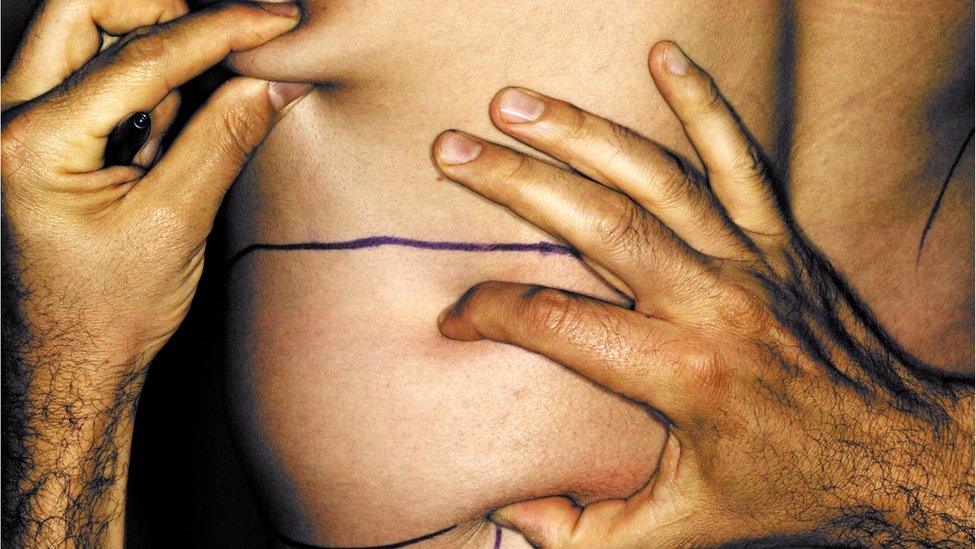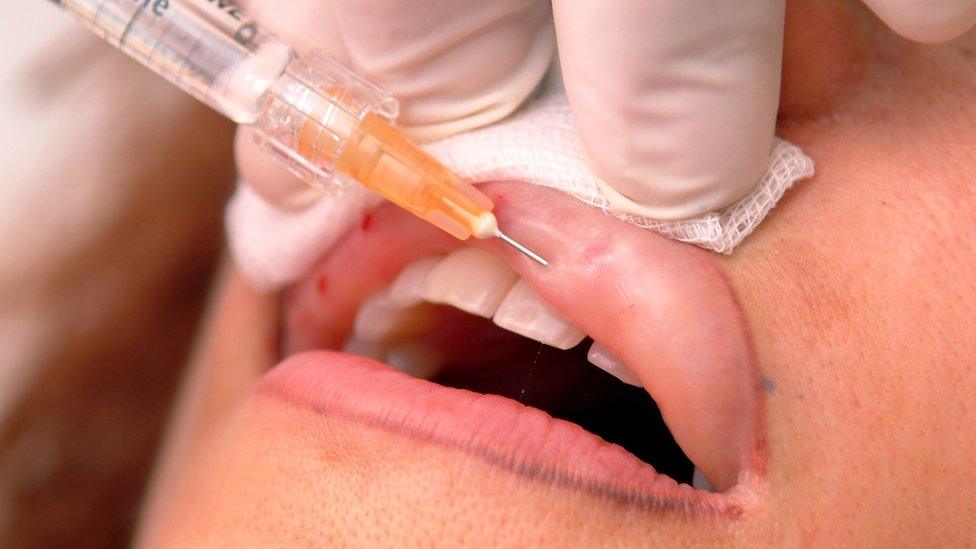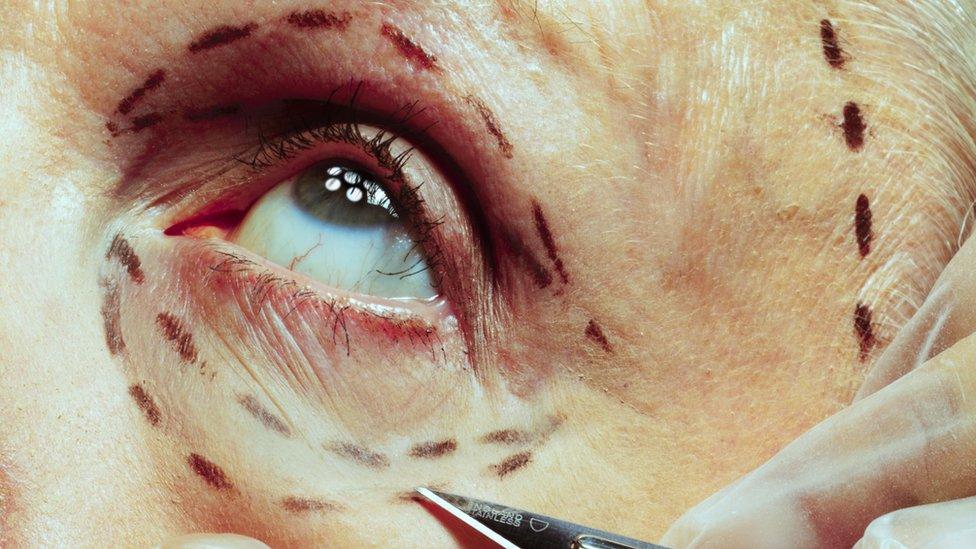Clampdown on cosmetic surgery cowboys
- Published

The body that regulates UK doctors is bringing in new guidelines for cosmetic procedures to stop rogue practitioners who put profits before patients.
The General Medical Council rules, coming into force in June for private clinics and the NHS, make it clear that patients must not be rushed or cajoled into having surgery.
Promotional tactics like two-for-one offers are banned.
Doctors who break the rules could be struck off the medical register.

The surgeon or practitioner who is carrying out the cosmetic procedure - be that a breast implant, face lift or botox injections - must fully explain the risks of any procedure and should make sure patients know who to contact if they experience any complications, say the guidelines.
They are in response to a review of the industry in 2013 by Prof Sir Bruce Keogh which found few safeguards for patients, particularly for those undergoing non-surgical cosmetic procedures such as dermal fillers.
"In fact, a person having a non-surgical cosmetic intervention has no more protection and redress than someone buying a ballpoint pen or a toothbrush," his report to government concluded.

The GMC says most doctors who do cosmetic procedures do so at a high standard "but we do sometimes come across poor practice, and it is important that patients are protected from this and that doctors understand what is expected from them".
The GMC has been working with the Royal College of Surgeons of England, which is launching its own set of professional standards for cosmetic surgeons.
The RCS is also calling on the government to introduce new legislation at the next Queen's Speech in May to make sure surgeons are certified to carry out cosmetic operations.
It is hoped the measures will put an end to botched and unethical procedures.
Victoria Ashton, who had PIP breast implants, says patients need to be more aware of risks
Victoria Ashton, a mum from Leeds, had breast implants in 2008 that she later found out might be faulty with a high risk of rupturing in the body. She's now part of a campaign group for the 47,000 UK women similarly affected by the PIP implant scandal.
She believes the guidelines should help consumers, but says the public needs to be more aware of the potential risks of surgery.
"Think twice," she said. "Profit before people is basically our experience of the cosmetic surgery industry. They are all lovely to you in the process of having your operations.
"As soon as your operation is over and done with and you are out of the period in which they look after you, they don't really want to know."
- Published23 January 2015

- Published26 January 2015
